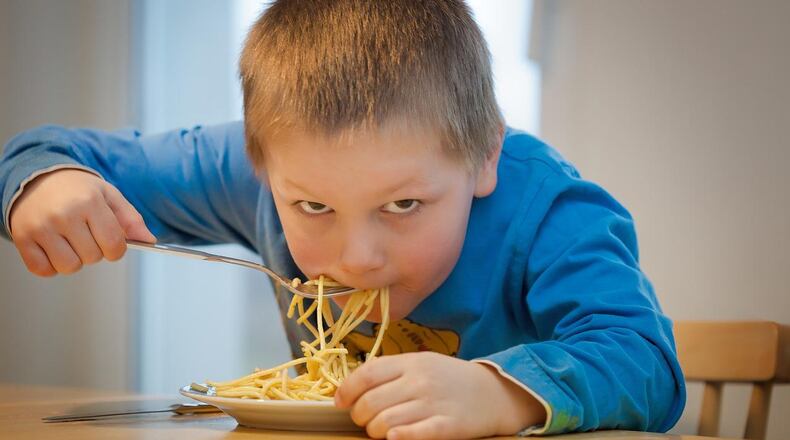Is your preteen eating you out of house and home? Of course they are. Adolescents love to eat and that tremendous grocery bill just comes with the territory, right?
That comes with the territory, but sometimes your child's heavy snacking isn't what it seems, according to the experts atnonprofit children's health site KidsHealth.
"They're growing like weeds, of course, so you figure all that eating is OK," according to a statement on the KidsHealth site. "And most of the time, it is."
A kid who eats unusually large amounts of food — and feels guilty or secretive about it — could be struggling with a common eating disorder called binge eating disorder, according to KH.
BED is fairly under the radar, only becoming an official diagnosis (and earning the right to insurance coverage) as per the American Psychiatric Association in 2013. But according to a study reported on the National Eating Disorders Association blog, BED affects 3.5 percent of women and 2 percent of men--and maybe as many of 1.6 percent of adolescents.
For a concerned parent, it's tough to separate the comfort food and celebration food moments from potential BED, especially since kids and teens who sometimes eat a lot don't necessarily have it.
"Kids can have huge appetites, especially during growth spurts, when they need more nutrients to fuel their growing bodies," KH noted.
One simple indicator:
"People with binge eating disorder have a different relationship with food — they feel like they've lost all control over how much they're eating, like they can't stop," noted KH. "They also binge more frequently, at least twice a week for several months."
Think your child might be crossing the line from occasional overindulgence to binge eating disorder? Take note of these symptoms of BED from KidsHealth:
- A fast-emptying fridge or pantry. "Parents and other family members may first suspect a problem when they notice large amounts of food missing, though it's hard to imagine one child could have eaten so much," KH said.
- A child eating a lot of food quickly
- A pattern of eating when under emotional stress, which could include family conflict, rejection from friends or peer, or poor academic performance
- A child feeling ashamed or disgusted by the amount they have eaten
- Finding food containers or wrappers hidden in a child's room
- An increasingly irregular pattern of eating that may include skipping meals, eating lots of junk food at other times of day and eating at unusual times, like very late at night.
"People who binge might experience feelings that are common to many eating disorders, such as depression, anxiety, guilt, or shame," KH noted. "They may avoid school, work, or socializing with friends because they're ashamed of their binge eating problem or changes in their body shape and weight."
Next steps
If you feel there's a good chance your tween does have binge eating disorder, according to the Child Mind Institute, the next step would be a diagnosis.
"For a child to be diagnosed with binge eating disorder, she must repeatedly eat unusually large amounts of food in relatively short periods of time, and feel that those fixed periods of intense eating are beyond his or her control," noted CMI. "To qualify for the disorder, at least three of the following factors must be present in a child's behavior: eating rapidly, eating to the point of uncomfortable fullness, eating when not hungry, eating in shame or in secret, and feeling disgusted, depressed or ashamed after eating. The behavior must occur at least twice a week for a period of six months."
BED does not involve self-induced vomiting after overeating.
Treatments are available for BED, and might include the following, according to CMI:
- Psychotherapy
- Medications
- Behavioral weight-loss programs
- Self-help strategies
It's important for parents to note that while the primary goal of treatment, to reduce or eliminate binging behavior, may go hand in hand with the goal of weight loss, not all children and adolescents with BED need to lose weight. "Psychotherapy, cognitive behavioral therapy, in particular, can help patients deal with the issues that may trigger binge eating, such as a negative body image, anxiety or depression," CMI noted. "There is some limited evidence to suggest that antidepressants and the anticonvulsant topiramate (Topamax) may be helpful in treatment of particularly resistant cases."
About the Author
Keep Reading
The Latest
Featured


